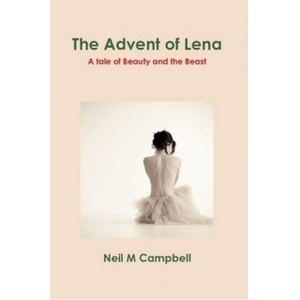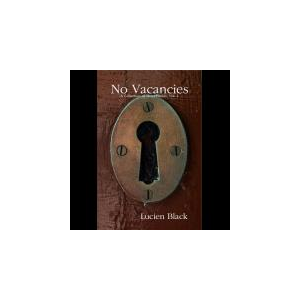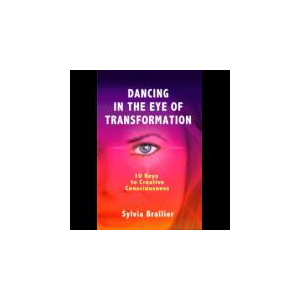**FOR IMMEDIATE RELEASE**:: LITERARYFICTION, ITALIAN CULTURE
BOOK ORDERS, contact
www.iUniverse.com, www.amazon.com or other amazon sites, www.barnesandhnoble.com, or order at any bookstore
Tel: 1-800-AUTHORS
Finding One’s Self on a Romantic Island That TimeForgot
Sardinian Silver
KINGSTON, ONTARIO – How many young people have dreamt of self and sexualdiscovery in a far off, exotic place? Arthur Fraser, the main character of SardinianSilver (published by iUniverse)by A. Colin Wright, not only dreamt of it, he realized his dream.Recruited to represent a travel firm from his homeland of Great Britain, Arthurarrives in the resort town of Alghero on the Island of Sardinia in theMediterranean Sea and is instantly bewitched. Based on his own time onSardinia, Wright’s captivating and oftentimes hilarious novel follows theexploits of a young man trying to find love while assimilating to anarchaically orthodox society.
Sardinian Silver opens with Arthur sailing across theTyrrhenian Sea towards his new home. On his journey to Sardinia, Arthur meets anative Sardinian named Gavino. Eager to make a new friend, let alone a Britishone, Gavino strikes up a conversation with Arthur and quickly offers to showArthur his island. Gavino is the first in a cavalcade of characters, serious,humorous and tragic, that help make Sardinian Silver the engaging recollection that it is.
Once settled into the Sardinian resort at which he isworking, Arthur sets out on achieving the one thing he wants most; finding aSardinian girlfriend. He knows that this will not be easy, as Gavino hasalready warned him. Sardinia in the 1960s was still very culturallyundeveloped. Sardinia’s residents viewed mainland Italians and continentals(the British counted among them) as immoral and contaminated by modern society.Still, this does not dissuade Arthur from his task.
It was ten past nine. Quickly the girlshad gone.
Parties like this were so promising,yet so empty. I recall another one, with Gavino and some of Marcella’s friends,where one girl enjoyed a few hidden caresses while we clutched togetherpublicly, but reacted scornfully when I attempted to get her outside alone, andthe others were quite shocked. Except for Marcella, who made fun of me. Hug andhold tightly in a dance, but be satisfied with this brief, despairing feel ofanother body, for it’s all you’re going to get unless you pay a prostitute formore: southern Italy in a nutshell. Yet Sardinia was a land of promise, which Iloved even if it remained unfulfilled.
In the tradition of Brideshead Revisited and The Lost Girl, Sardinian Silver is a charming and witty novel of growth, loss and realization that issure to delight even the most critical reader.
The Story Behind This Book
How Sardinian Silver and other things came to be written.
I went to Sardinia (from England, my home) in 1962, after seeing an ad for a teacher of English in a (dreadful) Berlitz school: I'd resigned from a job I didn't like after graduating from university in 1961. The first draft of the novel was written after my return from Sardinia: in 1962-3 I was again teaching English in a better school in Reggio Calabria, in the toe of Italy, and I used to sit writing in an outdoor cafe. With pen and paper of course—no word processors in those days!
Before going to Sardinia, I had worked in hotels as a tourist representative during my university vacations in Scotland and Switzerland. I decided to use that experience, rather than teaching, in the novel. Although the places are real enough and some characters were suggested by people I knew, everything was fictionalized. Thus, although based on my own experience, the novel is not autobiography.
In 1964 I was selected to go on the Anglo-Soviet exchange to Leningrad (now St. Petersburg) for a year. (I learned Russian during my national service in Britain in the Royal Air Force, 1956-58, and subsequently studied it with French and German as well at Cambridge University. I only learned Italian when I went to Sardinia.) I was still trying to type up my manuscript on the ship from London to Leningrad—but I had to mail it back to England from Helsinki, the last port before reaching the Soviet Union, because there was always the possibility that, with censorship there, custom officials would confiscate the manuscript.
Subsequently, after coming to Canada to teach Russian at Queen's University, I continued work on it and other creative writing projects, attending various workshops at the University of New Brunswick and the University of Iowa. Later I joined a writers’ group in Kingston and had many of my writings critiqued by the others.
My main work of course was academic, and I published many academic articles and a major book on the Russian writer, Mikhail Bulgakov. But I continued to write creatively, short stories (about 20 published in literary journals), novels and, more recently, plays. I have submitted these interminably to publishers and theatres without success, although some of the plays won competitions and were performed locally in the amateur theatre.
In 2004 I returned to Sardinia for the first time, finding it vastly changed (as described in the appendix)—giving the book, I think, a certain historical value. Having tried for years to get the novel published, I finally did so through iUniverse in 2008: the only problem now being to market it amongst so many other novels published and available.
Praise and Reviews
ForeWord
Clarion Review, 2009 FICTION
Sardinian
Silver
A.
Colin Wright
iUniverse,
186 pages, Softcover $14.95, 978-0-595-48100-2
Four
Stars (out of Five)
After an absence
of forty-two years, languages professor A. Colin Wright returned for a visit to
Sardinia. His nostalgic novel, Sardinian Silver, he says in its afterword, “evokes a
Sardinia that no longer exists but which had a quality of its own that is worth
remembering.” It was a quality he also found in the no longer extant brand of
Sardinian Silver wine that was “like a fleeting memory of something beautiful.”
His efforts to recapture the quality and memories of Sardinia, the wine, and
his friends from the 1960s have resulted in a novel of superior literary merit.
Wright’s
novel is a pastoral romance about a summer in the life of twenty-four-year-old
Englishman Arthur Fraser, a tourist guide in Sardinia. It is skilfully and
evocatively written, relying on the interactions between its characters as they
travel, fall in and out of love, and indulge in occasional bacchanalian
festivals. While there are no action-packed adventures, there is a
well-developed sojourn to Orgosolo, an enclave of outlaws where Arthur and his
friends feel, “as though we’re entering a forgotten civilization, peopled by ghosts
of ancient warriors.” And when Arthur and his friend Gavino vie for the same
girl, a kind of genteel jealousy arises, which suits the type of novel Wright
has written. Otherwise, the novel relies upon Arthur and his several female
acquaintances to add spice in some episodes and humour in others. Of particular
note is Wright’s ability to elicit the morals and mores of 1960’s Sardinia,
both through what happens on the island and in Rome, and by the attitudinal
interplay between traditionalist Sards and visiting foreigners like Arthur and
his transplanted English friends.
Wright’s
characters spring to life, full blown. Angst-ridden Arthur unceasingly searches
for love with all the wrong women until the right one arrives at the book’s
conclusion. His girlfriends contrast the morality of the day and the place with
their boldness and outspokenness. The men, on the other hand, either appear
grateful to follow in the wake of the women or to participate in surreptitious
affairs, like the “nauseating man with the moustache and the nasty smile”
inquiring of Arthur about the availability of a servant girl for “other
things.”
In
the end, as Arthur reminisces years later with his wife about Sardinia and “all
the people we knew there,” he concludes, “An odd bunch, weren’t they?” But odd
or not, they are well worth knowing.
M. Wayne Cunningham
Chicago
Center for Literature and Photography, March 25th, 2009
Sardinian
Silver
By A.
Colin Wright,
iUniverse / ISBN: 978-0-595-48100-2
The more these days that I'm getting
to read the growing amount of self-published and basement-press books out
there, the more I'm starting to realize that we are right on the cusp of a new
golden age of sorts for literature; that we are right at the start of a hundred
million retired baby boomers writing a hundred million pretty decent memoirs
and semi-autobiographical novels, most of which will never see much
distribution beyond a various few websites and print-on-demand outfits. It's
easy to forget in our contemporary times, after all, but the unusually large
population that makes up my parents' generation (born in the middle-class boom
following World War Two, hence the term 'baby boomers') really did swallow the
Kennedy 'social contract' Kool-Aid quite profoundly when they were young; they
really did buy into this whole idea of devoting forty years of one's life to a
kinda crappy office job, to raising a family and buying a home and perpetuating
the military-industrial complex that kept the US and Europe the undisputed
financial leaders on the planet for more than half a century, in return for a
fabled old age of leisure and wealth and cutting-edge medicine, a time when
they can finally sit down and bang out that book they put off writing for
decades (or paint those paintings, or grow that garden, or take that
globetrotting trip), but in this case with style and financial stability and
long-established health insurance to boot. And now here we are, forty years
since the Kennedy era, and sure enough millions more of these people are
retiring each and every year these days; and sure enough, every single one of
them seem to be sitting down and cranking out a book they've been working on in
their heads for forty freaking years, providing a deep and wide breadth of new
literature that we should all treasure for suddenly now existing.
Take
for example Sardinian Silver, the first novel by retired language professor and
playwright A. Colin Wright, which he plainly admits is based on real
experiences from his youth; specifically, the short period from his own
Kennedy-era days that he spent on the Mediterranean island of Sardinia, back in the early 1960s before it had become the middle-class tourist
mecca it now is. It's a fantastic short read, to tell you the truth, like
discovering a lost Graham Greene story or something; but that of course is the
problem with books like these too, that by waiting forty years to write this,
it simply will never have the kind of power or impact that Greene himself had
when publishing his similar tales back in the actual early '60s. And that's why
this growing collection of baby-boomer books are destined to exist mostly at
this ghettoized basement-press and self-published level, and why in many ways
it's actually your job as a reader to go out and find these kinds of books, if
one wishes to have the quietly pleasurable experience of reading them; because
books like these are definitely worth your time, but simply aren't worth
HarperCollins spending a million bucks on. That's just the drawback of waiting
forty years to do a creative project, is that the appropriate zeitgeisty moment
for that project has already long passed; and that of course is why we as a
society have such radically different views on amateur creativity now, and why
people are much more encouraged these days to write such books while holding
their crappy day jobs, not to wait until retirement to do so.
Because
make no mistake, this slim manuscript is a Mid-Century Modernist wet dream, not
only from the aspect of cultural references but even the tone and pacing of it
all. Set in 1961, it's the story of young Brit Arthur Fraser, who in a bout of
restlessness has recently accepted a slightly disreputable job as a jet-setting
tourist-company rep; his job during these "Swinging London" times is
essentially to laze around various unknown yet trendy hotspots around the
world, so that when customers of his travel agency show up for their vacations,
he can help them find the cool unknown neighborhood pubs and whatever other
prurient little things they're looking for. This gives Arthur the excuse, then,
to spend his days essentially bumming from one local venue to the next,
drinking and flirting with the natives, hanging out with his fellow
adventure-craving early-twenties rival tour reps; and along the way, he of
course falls in love with various women, has sex with various women, breaks up
with various women, and all the rest of the drama you would expect from a
good-looking 24-year-old suddenly living full-time on a desolated Mediterranean
island.
In
fact, for those familiar with her, this book actually reminds me a lot of the
Modernist-era work of crime novelist Patricia Highsmith (author of The Talented Mr. Ripley among many others), not in content
but rather because of what both authors are trying to accomplish with their
manuscripts, of the way both paint an indelible portrait of sleepy southern
Europe during the height of the continent's postwar economic prosperity and
optimism. The fact is that Wright takes his time here with his story, making
plot a dim second to the mere establishment of time and place and mood, gently
exploring the back alleys and side daytrips of this remarkable island with a
kind of grace and ease that only comes with maturity. And in this, astute
readers might be reminded as well of the "Alexandria Quartet" by
Lawrence Durrell, which once again was written in the same period this book is
set; like those four short novels all set in Egypt, this too really relishes
the time it spends with eccentric locals, really takes the effort to try to
make you feel what it was actually like to be in this particular exotic
location at this particular moment in history. And like the author, I too was
more entertained than annoyed by all the youthful self-caused mistakes Arthur
makes in his love life while there; and this is yet another benefit to Wright
penning this at the point in his life when he did, that his age and experience
lets him now look back and gently laugh at the indiscretions of his youth, to
reflect on them with the emotional distance that makes them truly memorable
tales. (And don't get me started on how charmed I was by the book's
contemplative epilogue, in which Arthur visits the now unrecognizable island in
the post-tourism-boom 2000s, looking back wryly on how different his life
would've been if he had only made a couple of different key decisions during
his first time there, musing aloud whether such an alternative life would've
ultimately been better or worse than the one he did end up living.)
But
of course you see the problem here; that nearly every detail I've mentioned,
from the books it resembles to the subjects discussed, are nearly half a
century old at this point, making Sardinian Silver fine for what it is but
simply decades past its cultural prime. And that's been a part as well of me
reading a growing amount of these basement-press baby-boomer books, a growing
frustration over all these people being taught back then to delay their
creative sides for decades to begin with; what a shame, I many times think
while reading books like these, that someone like Wright isn't a young hungry
creative right this moment, a period of history when such people are encouraged
to write these kinds of books when they matter the most, when they can have the
absolutely biggest cultural impact they can. That's the thing I want to make
most clear today, and is of course the root of the grand irony which is
retired-baby-boomer literature; that like I said before, this novel is without
a doubt as good as one of Graham Greene's minor works, and in fact could easily
be mistaken for some forgotten Greene tale that's been gathering dust in some
attic trunk for decades. What a shame, then, that Wright wasn't able to publish
this book when Greene was publishing too, and have the kind of impact that
Greene originally had when he too was fresh and exciting.
It's
for these reasons that a book like Sardinian Silver is such a satisfying read,
but also a book that by its nature will simply never become an unexpected hit,
will never get picked up by a mainstream press for national distribution. It's
yet another reason why smart lovers of books do themselves so much of a favor
by sometimes trawling the so-called "gutter" of self-published,
print-on-demand literature; as books like these show, millions of retiring baby
boomers are rapidly turning this once-derided section of the industry into a
legitimate new option for finding brilliant new novels, titles that fall in the
weird middle ground between mainstream and experimental. There may never exist
a simple guide to such books, and no splashy Hollywood adaptations may come
from them; but for those simply interested in reading great books, such
unfiltered wading through this print-on-demand world can many times produce
surprisingly great results.
Out of 10: 9.0
www.apexreviews.net
info@apexreviews.net
Sardinian Silver
Anthony Colin Wright
ISBN: 9780595481002
iUniverse
Reviewed By Linda Waterson
Official Apex Reviews Rating:
When Arthur arrives in Sardinia, he quickly finds it to be his version of
heaven on earth. From the scenery to the native customs to the folkways and
mores of the local residents, the idyllic island has everything his heart could ever
ask for - that is, until he meets the enchanting Anna, a breathtaking beauty who
soon becomes the sole focus of his existence.
Convinced that marrying a Sard girl would be the culmination of his living
fantasy, Arthur decides to pursue Anna - albeit cautiously - by using his best friend
to send a special gift to her; however, when his plan backfires and Anna instead
falls for his friend, his compulsive obsession with her only grows, setting off a
prolonged - and often hilarious - series of misadventures centered on his
unwavering determination to finally find true love.
Sardinian Silver is an engaging, entertaining read. In it, author Anthony
Colin Wright uses powerful imagery and a vivid cast of characters to bring a
compelling story of love - both sought and lost - to impressive life. Wright’s
depictions of Sardinia and its lush, flowing features is enough to make the reader
pine for an extended stay, and the sheer earnestness of Arthur’s ill-fated pursuits is
sure to spark the flames of nostalgic passion in many a lovelorn soul.
A compelling testament to the true power of persistence, Sardinian Silver
is a sobering, yet amusing reminder of the emotional fragility that lies within us all.
Highly recommended.















